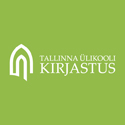Eesti isade-emade hoidjakeel: kes küsib, kes käsutab, kes räägib rohkem [Estonian fathers’ and mothers’ child-directed speech: who asks more questions, who gives orders, and who speaks more?]
Abstract
The article tries to determine whether and in what sense Estonian fatherese and motherese differ from each other. The amount and mean length of utterances (MLU) were observed, as well as their function in conversation. Seven and a half hours of audio recordings of children aged 5 to 11 talking with their parents were analysed, and the results were compared to language data from dialogues between two pairs of adults (two hours). The research data confirmed previous results (Matychuk 2005) and showed that in terms of the total number of utterances in an hour-long conversation, the Estonian fathers and mothers used roughly equal amounts of language while speaking with children, i.e. the average number of utterances in child-directed speech (CDS) did not differ significantly between fathers and mothers. However, it appeared that the mothers’ utterances were on average two words longer than those of the fathers. No significant variation was found in the frequency of speech acts with different functions. Fathers’ and mothers’ CDS formed a joint register that differed greatly from the use of language in adult-directed speech (ADS) but did not depend on the gender of the parent. Differences were noticed between CDS and ADS. Both fathers and mothers used an average of 30–50 utt erances more when speaking with children than in speaking with another adult. The difference was clearer in MLU; when speaking with an adult partner, mothers’ mean MLU was two words longer and fathers’ MLU even four words longer than when speaking with a child. The comparison between utterances with different communication purposes produced the expected results: more declaratives and fewer directives and questions were used in ADS compared to CDS. The number of declaratives in ADS was on average 20% higher than in CDS, which resulted in the lesser use of other types of utterances.
Keywords
language acquisition, child-directed speech, motherese, fatherese, pragmatics, Estonian
Full Text:
PDFRefbacks
- There are currently no refbacks.
Published by / Kirjastaja:

ISSN 2504-6616 (print/trükis)
ISSN 2504-6624 (online/võrguväljaanne)
